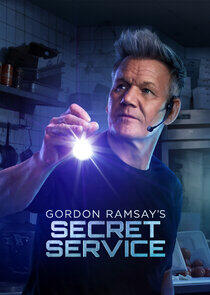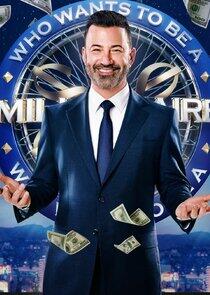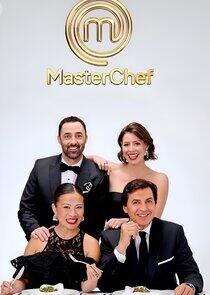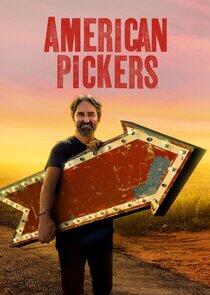Revolution and Romance: Musical Masters of the 19th Century - Season 1

Season 1

Episodes

We Can Be Heroes
In the first programme, Suzy Klein tells the story of a creative outpouring unrivalled before or since - the 19th century witnessed the emergence of composers such as Beethoven, Schubert, Berlioz, Chopin, Wagner, Verdi and Liszt, just to name a few of the stellar array whose genius we venerate to this day.
As the aristocracy weakened following the French Revolution, the industrial revolution created new wealth and the middle classes flourished, Suzy shows how it was possible for composers and performers to become the superstars of their age, no longer the servants of kings and princes.
Masters like Paganini and Liszt were idolised, commanded immense fees and had a following as adoring as any of the rock stars and singers of today. Composers tore up the rulebooks, embraced the spirit of Romanticism and poured out their souls in their bold and experimental work. And, freed from the chains of aristocratic patronage, they became entrepreneurs too, organising and profiting from their concerts, and winning unprecedented wealth, fame and status.
But with commercial success came a very modern backlash - artistic credibility v X Factor-style fame. Which would win out? Or could one coexist with the other? As music gained increasing power and influence as the art form of the 19th century, composers started to believe that they could change the world... and remarkably, they really did.

Talkin 'Bout a Revolution
In the 19th century, as Suzy Klein shows in the second episode of the series, music wasn't just a backdrop to life, easing pain and enhancing pleasure. It became a revolutionary force that could - and did - change the world.
As the impact of the violence and turmoil unleashed in the French Revolution reverberated around Europe, it was music that most viscerally carried the message that the people could stand up to kings and emperors. In France during the revolution, La Marseillaise emerged as a rallying cry - sung by the mob as they stormed the royal palace. When Napoleon imposed his grip on the nation it became an anthem of subversion, along with countless songs that pilloried the return to autocracy and the crushing of freedom.
But it was not just on the streets, as Suzy shows, that revolutionary fervour was stoked up. Even opera, intended by the authorities to reinforce the status quo, became politically potent, fanning the flames of nationalism and revolution throughout Europe. One French opera actually helped trigger a revolution when it was performed in Belgium in 1830.
Suzy shows how music came to express not only revolutionary fervour, but also the growing force of nationalism that was sweeping Europe. She discovers how Chopin's music, beneath its lyrical surface, expressed more powerfully than words the defiant spirit of the Polish people suffering under the oppression of a foreign power. And she explores how Carl Weber's lovely work Der Freischutz articulated the longings for nationhood of the Germans and inspired Richard Wagner to attempt the transformation of the human spirit through his work.
But it was Italian opera composer Giuseppe Verdi whose music had the most profound political impact in the 19th century. Suzy travels to Parma, Verdi's home town, to meet the disciples who keep his flame alive to this day, venerating the man whose music embodied the fight for freedom and whose very name came to symbolise Italy's fight for nationhood.

Party Like It's 1899
The final programme examines how the music of the 19th century was able to flourish through economic and social change, as well as a technological revolution.
It will show how advances in communication encouraged global travel, offering Western composers exciting new inspiration for their music. The episode also demonstrates how manufacturing developments in the century allowed musical innovation, and Klein makes her first recording on a vintage phonograph.
Recently Updated Shows

Gordon Ramsay's Secret Service
Restaurateurs who are looking for a quick fix or social media glow-up are in for the surprise of their lives when famed culinary titan Gordon Ramsay trades his signature chef knives for a state-of-the-art surveillance vehicle and cutting-edge spyware in FOX's all-new unscripted series, Gordon Ramsay's Secret Service. In a Gordon Ramsay series first, Chef Ramsay will venture into struggling restaurants under the cover of night. With the help of a secret source on the inside, he'll gather raw, unfiltered evidence and get a 360-degree view of the major issues facing each restaurant. This insider will not only remain a secret to the staff, but will also help Ramsay infiltrate the restaurant after-hours for a dramatic nighttime black light kitchen investigation that reveals more filth and grossness than ever before. By the time Ramsay reveals his identity, it will be too late for staff to cover up their culinary crimes. Gordon Ramsay's Secret Service will be his toughest assignment yet as he takes drastic measures to transform not only the restaurant but also the staff, because Gordon knows he can upgrade the menu and renovate the restaurant, but the most important change has to come from the people. Are the restaurant and staff willing to accept Gordon's mission, or are they too far gone to be saved?

Holmes Family Rescue
Mike Holmes has been making it right for years, and now it's a family affair. Mike's daughter Sherry and son Michael share their own dedication and expertise as they join forces to rescue homeowners from botched construction jobs and renovation fatigue.

Who Wants to Be a Millionaire
In Who Wants to Be a Millionaire, 15 questions need to be answered by the contestants to win the 1 million dollar prize.

MasterChef Australia
MasterChef Australia is an Australian competitive cooking game show consisting of a group of hopeful contestants that cook and present food to judges in order to win the title of MasterChef Australia.

American Pickers
This isn't your grandmother's antiquing. The American Pickers are on a mission to recycle America, even if it means diving into countless piles of grimy junk or getting chased off a gun-wielding homeowner's land. Hitting back roads from coast to coast, the Pickers earn a living by restoring forgotten relics to their former glory, transforming one person's trash into another's treasure. The show follows the team as they scour the country for hidden gems in junkyards, basements, garages and barns, meeting quirky characters and hearing their amazing stories. If you think the antique business is all about upscale boutiques and buttoned-up dealers, this show may change your mind – and teach you a thing or two about American history along the way.